Intro
Discover what is SKU, a unique product identifier, and learn about stock-keeping units, inventory management, and product cataloging to optimize retail operations and e-commerce logistics.
The concept of Stock Keeping Units, or SKUs, is crucial in the world of retail, inventory management, and e-commerce. Understanding what SKUs are and how they work can significantly impact the efficiency and profitability of a business. In this article, we will delve into the world of SKUs, exploring their definition, importance, benefits, and how they are used in various industries.
A Stock Keeping Unit, or SKU, is a unique code assigned to a specific product or item for sale. It is used to identify, track, and manage inventory levels, sales, and other business operations. SKUs are typically alphanumeric, consisting of a combination of letters and numbers that distinguish one product from another. They can be thought of as a fingerprint for each product, allowing businesses to accurately identify and manage their inventory.
The importance of SKUs cannot be overstated. They play a critical role in inventory management, allowing businesses to track stock levels, monitor sales, and make informed decisions about production, pricing, and distribution. SKUs also enable businesses to analyze sales data, identify trends, and optimize their product offerings to meet customer demand. In addition, SKUs are essential for e-commerce businesses, as they enable online retailers to manage their digital inventory and fulfill orders efficiently.
Benefits of Using SKUs

The benefits of using SKUs are numerous. Some of the most significant advantages include:
- Improved inventory management: SKUs enable businesses to track stock levels, monitor sales, and make informed decisions about production and distribution.
- Enhanced sales analysis: SKUs allow businesses to analyze sales data, identify trends, and optimize their product offerings to meet customer demand.
- Increased efficiency: SKUs streamline inventory management, reducing errors and improving the overall efficiency of business operations.
- Better decision-making: SKUs provide businesses with accurate and timely data, enabling them to make informed decisions about pricing, production, and distribution.
- Improved customer satisfaction: SKUs enable businesses to fulfill orders efficiently, reducing the risk of stockouts and improving customer satisfaction.
How SKUs Work
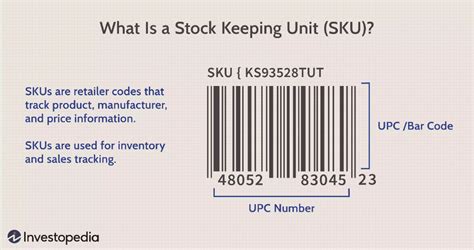
SKUs work by assigning a unique code to each product or item for sale. This code is then used to track inventory levels, sales, and other business operations. Here's a step-by-step overview of how SKUs work:
- Product creation: A new product is created, and a unique SKU is assigned to it.
- Inventory management: The SKU is used to track inventory levels, monitor sales, and make informed decisions about production and distribution.
- Sales analysis: The SKU is used to analyze sales data, identify trends, and optimize product offerings to meet customer demand.
- Order fulfillment: The SKU is used to fulfill orders efficiently, reducing the risk of stockouts and improving customer satisfaction.
Types of SKUs
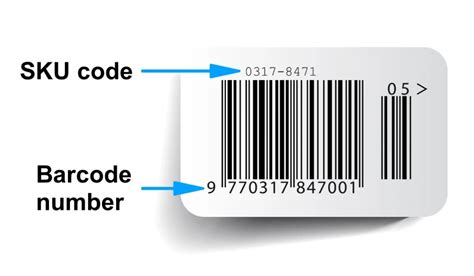
There are several types of SKUs, each with its own unique characteristics and uses. Some of the most common types of SKUs include:
- Product SKUs: These are the most common type of SKU and are used to identify individual products.
- Variant SKUs: These are used to identify different variations of a product, such as size, color, or material.
- Bundle SKUs: These are used to identify bundles or packages of products that are sold together.
- Digital SKUs: These are used to identify digital products, such as e-books, software, or online courses.
Best Practices for Using SKUs

To get the most out of SKUs, businesses should follow best practices for using them. Some of the most effective strategies include:
- Using unique and descriptive SKUs: SKUs should be unique and descriptive, making it easy to identify products and track inventory.
- Keeping SKUs consistent: SKUs should be consistent across all sales channels and inventory management systems.
- Using SKUs to analyze sales data: SKUs can be used to analyze sales data, identify trends, and optimize product offerings to meet customer demand.
- Regularly reviewing and updating SKUs: SKUs should be regularly reviewed and updated to ensure they remain accurate and effective.
Common Challenges with SKUs

While SKUs are a powerful tool for inventory management and sales analysis, they can also present challenges. Some of the most common issues with SKUs include:
- Duplicate SKUs: Duplicate SKUs can cause confusion and errors, making it difficult to track inventory and analyze sales data.
- Inconsistent SKUs: Inconsistent SKUs can make it difficult to compare sales data and track inventory across different sales channels.
- Outdated SKUs: Outdated SKUs can cause errors and confusion, making it difficult to track inventory and analyze sales data.
Future of SKUs

The future of SKUs is exciting, with new technologies and innovations emerging all the time. Some of the most significant trends and developments include:
- Artificial intelligence: Artificial intelligence is being used to optimize inventory management and sales analysis, making it easier to use SKUs to make informed decisions.
- Internet of Things: The Internet of Things is enabling businesses to track inventory and sales data in real-time, making it easier to use SKUs to optimize operations.
- Blockchain: Blockchain technology is being used to create secure and transparent SKUs, making it easier to track inventory and sales data.
Gallery of SKUs
SKUs Image Gallery
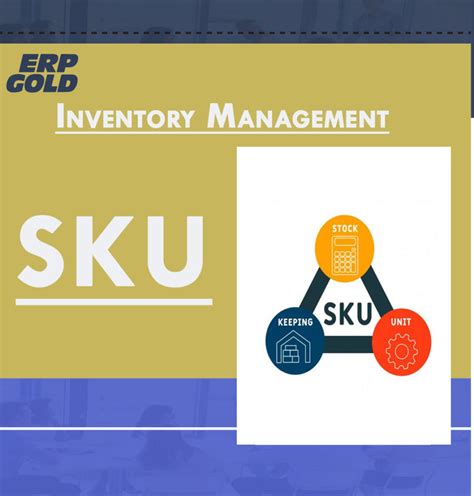
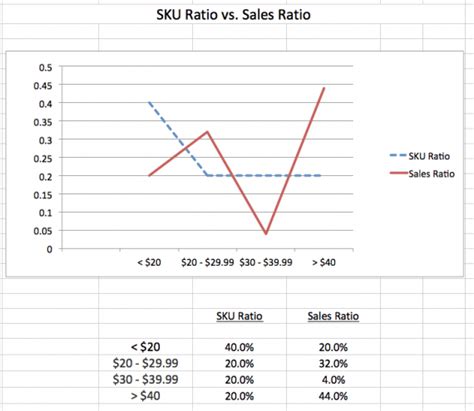
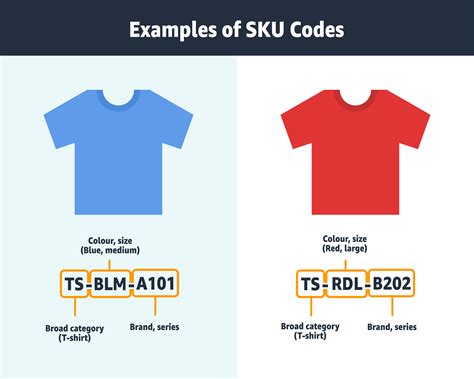




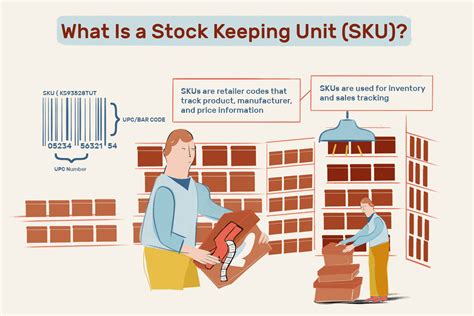

What is a Stock Keeping Unit (SKU)?
+A Stock Keeping Unit (SKU) is a unique code assigned to a specific product or item for sale, used to identify, track, and manage inventory levels, sales, and other business operations.
Why are SKUs important?
+SKUs are important because they enable businesses to track inventory levels, monitor sales, and make informed decisions about production, pricing, and distribution.
How do SKUs work?
+SKUs work by assigning a unique code to each product or item for sale, which is then used to track inventory levels, sales, and other business operations.
In conclusion, SKUs are a powerful tool for inventory management and sales analysis, enabling businesses to track inventory levels, monitor sales, and make informed decisions about production, pricing, and distribution. By understanding what SKUs are, how they work, and best practices for using them, businesses can optimize their operations, improve customer satisfaction, and increase profitability. We invite you to share your thoughts on SKUs, ask questions, or provide feedback on this article. Your input is valuable to us, and we look forward to hearing from you.
